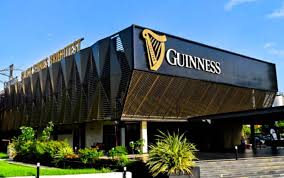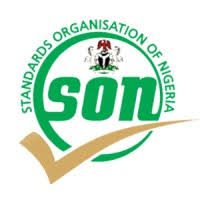
Israel extols 30 yrs of renewed diplomatic relations with Nigeria
Amb. Michael Freeman, Ambassador of Israel to Nigeria, has extolled the maiden nine-day project on “Art of friendship” in commemoration of the 30th anniversary of Israel-Nigeria renewed diplomatic relations.
Freeman said this to the News Agency of Nigeria (NAN) on Friday in Abuja, on the sidelines of the ongoing project implementation fixed from Jan. 30, to Feb. 8, 2023.
The envoy said that the project was carried out in patnership with Orisun Art Gallery to mark the 30 years of renewed diplomatic relations between Israel and Nigeria since 1992.
According to him, the project by Ella Amitai Sadovsky, an Israeli Artist and Dr Peju Layiwola, Nigerian Artist, was designed to promote diplomatic ties and friendship between the two countries.
Freeman said, “Israel and Nigeria are marking renewed diplomatic relations of 30 years of renewed friendship; we chose to symbolise this by hosting event with two world renowned artists.
“One artist from Nigeria and one from Israel have come together in Abuja after working for six-months, to produce one unique piece of art.
“In the past, they have been artists that worked together and collaborated to produce their own piece, but this two artists are to produce one unique piece that both will work on.
“To reflect Nigeria-Israel and the relationship between the two countries, we chose art because it is an expressive form which allows people talk about their desires.
“Art is open to interpretation, possibilities; it reminds us all the time and it lasts for ever; every person sees a different opportunity, potential and ways of seeing piece of art.”
He mentioned that the art-piece would reflect diverse opportuninty, potential and values that showcase Israel/Nigeria agriculture, waterways, economic cooperation and beautiful landscape.
Freeman explained that the collaborative project was organised to commemorate the anniversary, showcase gallery of art for auction to raise funds for charity donation to less privileged in Israeli-NGO and Nigerian-NGO respectively.
In separate interview, Israeli Artist, Amitai Sadovsky, commended the project initiative to be designed for Nigerians to know more about Israel and for Israelis to know about Nigeria.
Amitai Sadovsky said, “It is very important to know not as a tourist but in person, to know not just Nigeria Artist, Dr Peju Layiwola, but many other artists here as well and to share ideas, thoughts and materials.
“The art industry or techniques are not so important, you can learn it; the major thing is to study about the similarity in history that we both have.
“The Israeli Jewish people were also colonised, for two thousand years, yet in less than75 years we are in Israel after an exile of more than 2000 years.”
For her part, Nigerian Artist, Layiwola described the project as unique, saying it would foster exchange of ideas by people-to-people between both countries.
“I think it is unique in the sense that we are not doing separate pieces of art, we are working on same platform.
“Both of us are creating work on the same platform in a very unique experience, I think it is the first of its kind really, when you think about how artists work.
“People say that artists like their own space and I think that we have come together as one to synergise our ideas and create this artwork, which will be auctioned.
“It is a platform for us to exchange ideas and techniques and products; it is a learning curve, she is learning from me, just as I am learning from her,” Layiwola said.



